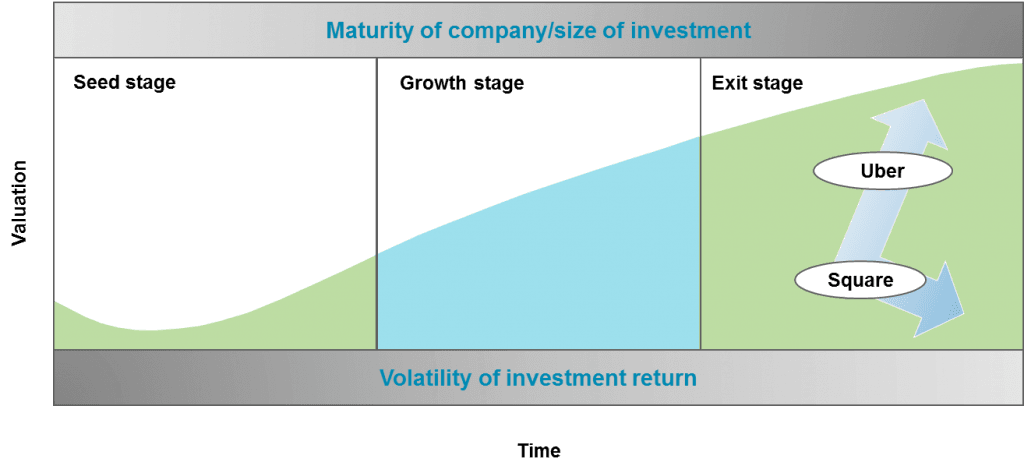Much ink has been spilled predicting the end of the tech boom, most recently in The Wall Street Journal. Yet even as deal volume has tumbled, and IPOs like that of Square struggle, the valuations of Uber, Pinterest and other top privately held firms continue to rise. In my view (and as I note in my most recent report), this bifurcation of the private market signals less the bursting of a tech bubble than the natural maturation of the technology cycle. Per the graphic below, it represents a kind of “Ivy League effect,” whereby elite institutions can command top dollar even as the overall market deflates. After all, the factors driving the growth of the private market have not gone away, nor have the cost and hassles of going public.  Given these factors, it stands to reason that demand for shares of Uber and other top privately held firms will continue to put structural pressure on the IPO market, at a cost to its relevance. Investors will want to cash out in many cases, but Alternative Trading Systems marketplaces such as Venovate and iCapital (as well as equity crowdfunding sites created under the JOBS Act) now offer alternative sources of capital. What does the IPO matter if the most dynamic firms opt to stay private?
Given these factors, it stands to reason that demand for shares of Uber and other top privately held firms will continue to put structural pressure on the IPO market, at a cost to its relevance. Investors will want to cash out in many cases, but Alternative Trading Systems marketplaces such as Venovate and iCapital (as well as equity crowdfunding sites created under the JOBS Act) now offer alternative sources of capital. What does the IPO matter if the most dynamic firms opt to stay private?





